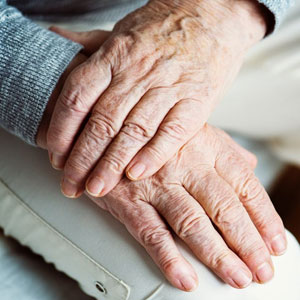Tremor & Ataxia
- Home
- Services
- Tremor & Ataxia
Tremor & Ataxia
Tremor is characterized as a rhythmic, non-voluntary, swaying movement of a body part happening without coordination to the other body parts or as a component of a clinical disorder. This shaking happens as a result of muscle compressions. A tremor is regularly in your hand, yet it could likewise influence your arms, head, vocal cords, trunk, and legs. It might be transient, or it very well might be steady. Tremor can occur all alone or be brought about by another problem. Get the movement disorder treatment in Ongole from Dr.Sarat Mallipeddi at Neurology hospitals in Ongole.
What are the kinds of tremors?
There are a few kinds of tremors, including
- Essential tremor, once in a while called benign essential tremor. This is the most well-known sort. It for the most part influences your hands, yet it can likewise influence your head, voice, tongue, legs, and trunk.
- Parkinsonian tremor, which is a typical side effect in individuals who have Parkinson's disease. It generally influences one or two hands when they are very still, however it can influence the jawline, lips, face, and legs.
- Dystonic tremor, which occurs in individuals who have dystonia. Dystonia is a movement problem where you have compulsory muscle compressions. The compressions cause you to have bending and dull developments. It can influence any muscle in the body.

By and large, tremor is brought about by an issue in the deep pieces of the brain that control movements. For most sorts, the reason is obscure. A few kinds are acquired and run in families. There can also be different causes, for example,
- Neurologic problems, including multiple sclerosis, Parkinson's disease, stroke, and traumatic brain injury.
- Certain drugs, for example, asthma prescriptions, amphetamines, caffeine, corticosteroids, and meds utilized for certain mental and neurological problems
- Alcohol use issue or liquor withdrawal
- Mercury harming
- Hyperthyroidism (overactive thyroid)
- Liver or kidney failure
- Anxiety or frenzy
Ataxia
Ataxia is a degenerative disease of the nervous system. Numerous side effects of Ataxia emulate those of being drunk, like slurred speech, staggering, falling, and in coordination. These side effects are brought about by harm to the brain, the piece of the brain that is required for organizing movements.
Ataxia can create over the long run or erupt abruptly. An indication of various neurological issues, ataxia can cause:
- Poor coordination
- Unsteady walk and a propensity to stumle
- Difficulty with fine motor activities, like eating, writing or securing a shirt
- Change in speech
- Involuntary to and fro eye movements (nystagmus)
- Difficulty gulping
Sicknesses that harm the spinal cord and periphera nerves that associate your cerebellum to your muscles additionally can cause ataxia. Ataxia causes include:
- Head injury.
- Stroke.
- Cerebral palsy.
- Autoimmune disease. Various sclerosis, sarcoidosis, celiac infection and other immune system conditions can cause ataxia.
- Infections. Ataxia can be a rare entanglement of chickenpox and other viral contaminations like HIV and Lyme infection.
- Abnormalities in the brain
- Vitamin E, nutrient B-12 or thiamine inadequacy.
- Thyroid issues. Hypothyroidism and hypoparathyroidism can cause ataxia.
- COVID-19 disease. This contamination may cause ataxia, most ordinarily in extremely serious cases.
Consult tremor ataxia specialist in Ongole at movement disorder hospitals in Ongole
STROKE IF LEFT UNTREATED CAN BE EXTREMELY DANGEROUS
Treatment within the first 4 hours 30 minutes can save your Life BE FAST, Call Us Immediately
+91 70133 53346 Find Doctor

